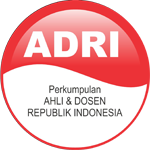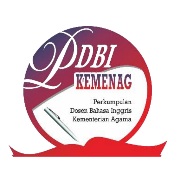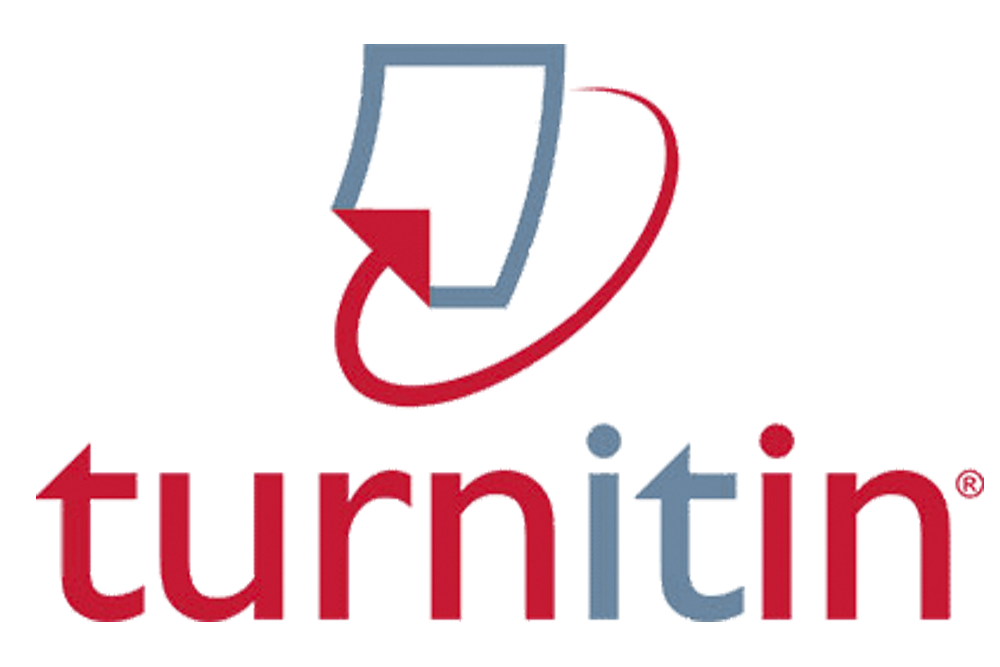Utilizing Group Discussion Technique in Developing Speaking Skill in an EFL Classroom
Abstract
This study aims to identify students’ speaking skills in the English Department at UIN Datokarama Palu that could be developed through group discussion techniques. It was designed as collaborative classroom action research and divided into two cycles. Data came from class observation, field notes, a questionnaire, and a speaking test over six meetings of speaking lessons on the second term of the semester. The research included 22 students. The researcher identified the students’ speaking skill development based on the criteria of success established. The findings showed that 11 students (50%) acquired it, and 11 students (50%) fizzled in the first cycle. The researcher continued to the next cycle since the students’ speaking achievement did not meet the criteria of success yet. Some improvements were made in order to cover the drawbacks in the first cycle, such as rearranging the members of the group and emphasizing teaching on the use of 'opened-ended questions’. There were 18 students (81.8%) who acquired it, and just 4 students (18.2%) fizzled in the second cycle. Besides, all students felt challenged to participate in group discussions. However, their participation varied greatly among the individual students. An interesting implication of this research was that students’ speaking skills could be developed through group discussion techniques.
Keywords
Full Text:
PDFReferences
Aidinopoulou, V., & Sampson, D. G. (2017). An action research study from implementing the flipped classroom model in primary school history teaching and learning. Journal of Educational Technology & Society, 20(1), 237-247.
Alek, A., Marzuki, A. G., Farkhan, M., & Deni, R. (2020). Self-assessment in exploring EFL students’ speaking skill. Al-Ta lim Journal, 27(2), 208-214.
AL-Garni, S. A., & Almuhammadi, A. H. (2019). The effect of using communicative language teaching activities on EFL students' speaking skills at the university of jeddah. English Language Teaching, 12(6), 72-86.
Arutmayanti, N., & Astuti, B. (2023). Effectiveness Of Group Guidance Services With Discussion Techniques In Reducing Academic Procrastination Of Class X Students Of Shs 4 Samarinda, Indonesia. European Journal of Education Studies, 10(9).
Bohari, L. (2020). Improving speaking skills through small group discussion at eleventh grade students of SMA Plus Munirul Arifin NW Praya. Journal of Languages and Language Teaching, 7(1), 68-81.
Bonnet, J. L., Herakova, L., & McAlexander, B. (2018). Play on? Comparing active learning techniques for information literacy instruction in the public speaking course. The Journal of Academic Librarianship, 44(4), 500-510.
Crisianita, S., & Mandasari, B. (2022). The use of small-group discussion to imrpove students’speaking skill. Journal of English Language Teaching and Learning, 3(1), 61-66.
Ehsan, N., Vida, S., & Mehdi, N. (2019). The impact of cooperative learning on developing speaking ability and motivation toward learning English. Journal of language and education, 5(3 (19)), 83-101.
Hamouda, A. (2020). The effect of virtual classes on Saudi EFL students’ speaking skills. International Journal of Linguistics, Literature and Translation, 3(4), 175-204.
Hanifa, R. (2018). Factors generating anxiety when learning EFL speaking skills. Studies in English Language and Education, 5(2), 230-239.
Hussain, S. (2017). Teaching speaking skills in communication classroom. International Journal of Media, Journalism and Mass Communications, 3(3), 14-21.
Hussin, R. A., Gani, S. A., & Muslem, A. (2020). The use of Youtube media through group discussion in teaching speaking. English Education Journal, 11(1), 19-33.
Hussin, R. A., Gani, S. A., & Muslem, A. (2020). The use of Youtube media through group discussion in teaching speaking. English Education Journal, 11(1), 19-33.
Iman, J. N. (2017). Debate Instruction in EFL Classroom: Impacts on the Critical Thinking and Speaking Skill. International Journal of Instruction, 10(4), 87-108.
Kaharuddin, K., & Rahmadana, A. (2020). Problem-based group discussion: an effective ELT technique to improve vocational high school students’ transactional speaking skills. Jurnal Ilmu Budaya, 8(2), 247-258.
Krebt, D. M. (2017). The effectiveness of role play techniques in teaching speaking for EFL college students. Journal of language Teaching and Research, 8(5), 863.
Kuning, D. S. (2019). Technology in teaching speaking skill. Journal of English Education, Literature and Linguistics, 2(1), 50-59.
Lin, Y. J., & Wang, H. C. (2021). Using virtual reality to facilitate learners’ creative self-efficacy and intrinsic motivation in an EFL classroom. Education and Information Technologies, 26(4), 4487-4505.
Marzuki, A. G., & Kuliahana, A. (2021). Using Language Games to Enhance EFL Students’ Speaking Skill in Indonesia. Al-Ta lim Journal, 28(3), 213-222.
Menggo, S. (2016). The effect of discussion technique and English learning motivation toward students’ speaking ability. Jurnal Pendidikan dan Kebudayaan Missio, 8(1), 112-119.
Mirra, N., Filipiak, D., & Garcia, A. (2015). Revolutionizing inquiry in urban English classrooms: Pursuing voice and justice through youth participatory action research. English Journal, 49-57.
Mogea, T. (2019). Enhancing students’ speaking ability through small group discussion technique to the first year students of SMA Negeri 1 Ratahan.
Mulyanah, E. Y., Ishak, I., & Dewi, R. K. (2018). The Effect of Communicative Language Teaching on Students' Speaking Skill. Cyberpreneurship Innovative and Creative Exact and Social Science, 4(1), 67-75.
Namaziandost, E., Neisi, L., Kheryadi, & Nasri, M. (2019). Enhancing oral proficiency through cooperative learning among intermediate EFL learners: English learning motivation in focus. Cogent Education, 6(1), 1683933.
O. Nyumba, T., Wilson, K., Derrick, C. J., & Mukherjee, N. (2018). The use of focus group discussion methodology: Insights from two decades of application in conservation. Methods in Ecology and evolution, 9(1), 20-32.
Pochana, T. (2022). The effects of cooperative learning Techniques on Thai secondary School students’ reading comprehension. Journal of Modern Learning Development, 7(2), 333-346.
Rao, P. S. (2019). The importance of speaking skills in English classrooms. Alford Council of International English & Literature Journal (ACIELJ), 2(2), 6-18.
Rao, P. S. (2019). The importance of speaking skills in English classrooms. Alford Council of International English & Literature Journal (ACIELJ), 2(2), 6-18.
Saed, H. A., Haider, A. S., Al-Salman, S., & Hussein, R. F. (2021). The use of YouTube in developing the speaking skills of Jordanian EFL university students. Heliyon, 7(7).
Weda, S., Atmowardoyo, H., Rahman, F., Said, M. M., & Sakti, A. E. F. (2021). Factors affecting students’ willingness to communicate in EFL classroom at higher institution in Indonesia. Andi Elsa Fadhilah Sakti.
Yesilçinar, S. (2019). Using the flipped classroom to enhance adult EFL learners' speaking skills. PASAA: Journal of Language Teaching and Learning in Thailand, 58, 206-234.
Zuhriyah, M. (2017). Storytelling to improve students’ speaking skill. English Education: Jurnal Tadris Bahasa Inggris, 10(1), 119-134.
Zyoud, M. (2016). Theoretical perspective on how to develop speaking skill among university students. Pune Research Scholar an International Multidisciplinary Journal, 2(1), 1-10
DOI: http://dx.doi.org/10.29240/ef.v7i2.8197
Refbacks
- There are currently no refbacks.
Copyright (c) 2023 Ana Kuliahana, Abdul Gafur Marzuki

This work is licensed under a Creative Commons Attribution-NonCommercial-ShareAlike 4.0 International License.
INDEXED BY:
 This work is licensed under a Creative Commons Attribution-NonCommercial-ShareAlike 4.0 International License
This work is licensed under a Creative Commons Attribution-NonCommercial-ShareAlike 4.0 International License
@ ENGLISH FRANCA : Academic Journal of English Language and Education
Jl. Dr. AK Gani No 1 Dusun Curup, Rejang Lebong Regency, Bengkulu Province, Indonesia, 39119.
Dr. Eka Apriani, M.Pd., email: efranca@iaincurup.ac.id, eka.apriani@iaincurup.ac.id.




.png)












